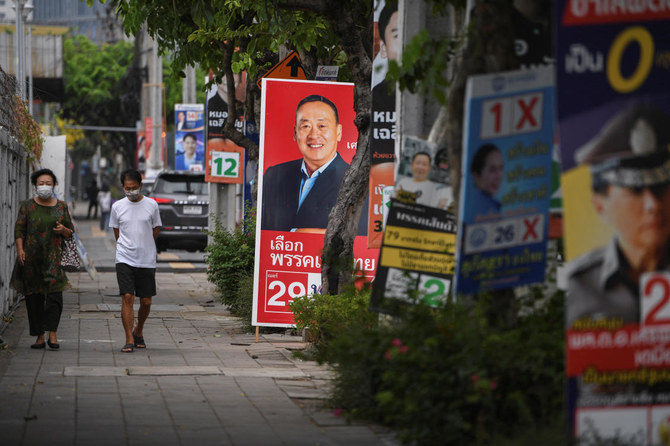SA KAEO, Thailand: In the searing hot sun, Preeya Phunatung toils long hours on a rural Thai construction site to support her family of four.
It is a struggle for Preeya to buy even staples such as rice, fish sauce and cooking oil because her $9-a-day income is not keeping pace with inflation.
Thailand goes to the polls on May 14 with major parties promising to ease poverty as low-income households struggle for survival in the face of soaring prices and deep-seated inequality.
But analysts warn that the populist policies being bandied about will do little to address structural problems that have left Thai economic growth lagging behind its Southeast Asian neighbors.
“I live from hand to mouth,” Preeya said at her small house in the eastern province of Sa Kaeo, where the number of people living below the poverty line jumped by almost 25 percent between 2020 and 2021, according to official data.
“Life after the pandemic is very hard.”
Thailand has nearly 30 billionaires, according to Forbes magazine, but it also has one of the highest rates of income inequality in East Asia and the Pacific.
In the wake of the 2014 military coup that brought current Prime Minister Prayut Chan-O-Cha to power, momentum in reducing poverty that had built up since the 1990s was lost.
The Covid-19 pandemic deepened the stagnation and the kingdom has struggled to bounce back.
Thailand is the only country in Southeast Asia apart from coup-hit Myanmar where GDP has not yet recovered to pre-pandemic levels, according to the World Bank.
As the election campaign enters the home straight, parties across the political spectrum are locked in a bidding war to attract the country’s millions of low-income voters — pledging higher wages, pension increases and debt relief. –Agencies




